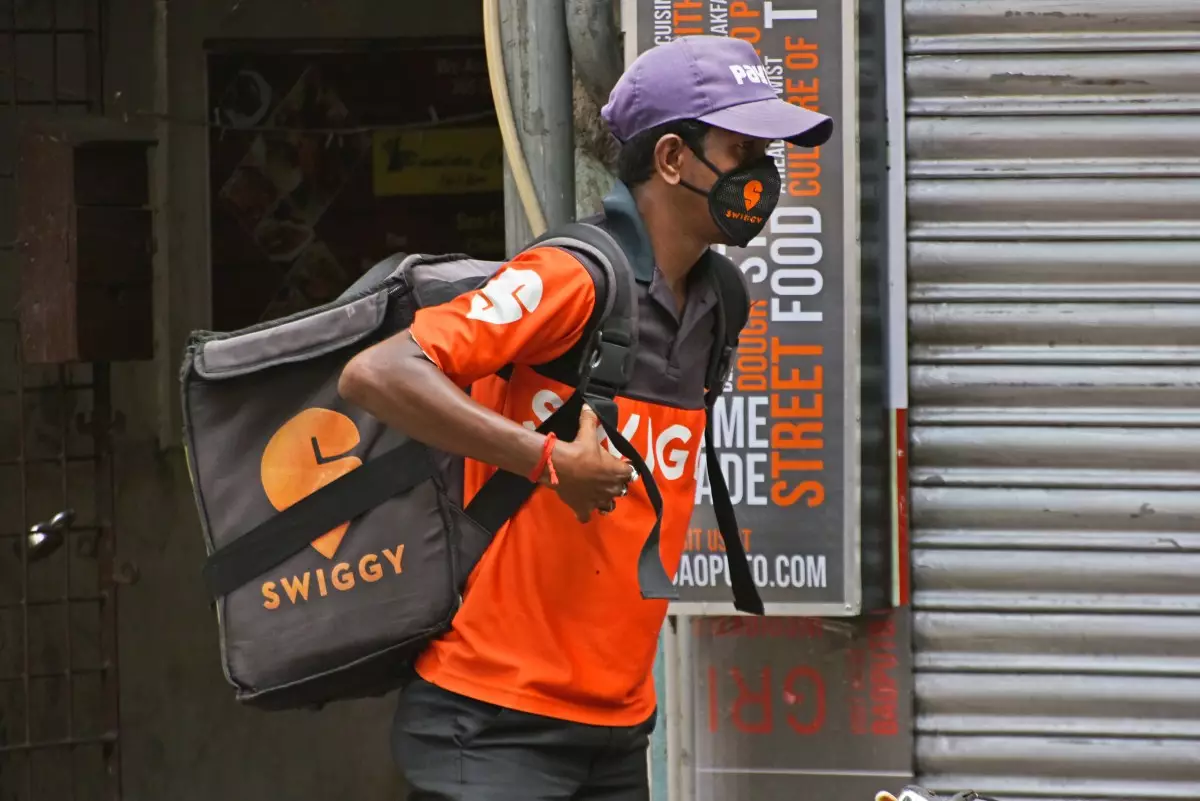Swiggy, one of India’s foremost food delivery platforms, recently made headlines by announcing the launch of a groundbreaking service that promises meal deliveries in just 10 minutes. This innovative initiative, named Bolt, is available in several bustling metropolitan areas, further intensifying the competition in the burgeoning quick-commerce market. The introduction of this fleet of rapid deliveries is not merely an enhancement of existing services; it’s a strategic move within a sector witnessing unprecedented growth, particularly in the country that stands as the world’s second-largest internet user base.
To make this ambitious promise a reality, Swiggy has formed alliances with over 2,700 restaurants, including famous global brands like KFC, McDonald’s, and Starbucks. This extensive network is crucial for ensuring that a diverse array of fast and popular foods can be streamlined for quick delivery. Customers can expect to receive their favorite meals, including coffee, burgers, and regional classics like biryani, more promptly than ever before. A statement by Swiggy’s head of food delivery, Rohit Kapoor, highlights how they previously revolutionized meal delivery by cutting wait times to just 30 minutes, and now, the bar is being raised even higher.
The operational mechanics of Bolt are designed to optimize delivery efficiency. By limiting deliveries to a 2-kilometer radius, and focusing on quick-to-prepare meals, Swiggy is ensuring that their promise of speedy service is practical and achievable. This allows the startup to cater to urban dwellers who often seek convenience and speed in their dining experiences. The decision to emphasize frequent orders reflects an understanding of consumer behavior, recognizing that popular choices often determine the flow of business in the food service industry.
Competitive Landscape and Market Implications
Swiggy is not alone in this race; they face stiff competition from publicly listed Zomato and other players in the quick-commerce arena, such as Zepto and Tata’s BigBasket. The rapid expansion of the quick-commerce sector, which has reportedly grown over 100% in the past year, signifies a significant shift in consumer expectations around delivery times and service quality. Many analysts note that this upsurge in quick-commerce services may even begin to siphon off customers from traditional e-commerce giants like Flipkart, which recently launched its own rapid delivery initiative.
The launch of Bolt marks a pivotal moment not just for Swiggy but for the entire food delivery landscape in India. It’s a calculated step toward shaping consumer habits and redefining convenience in everyday dining. As the competition heats up and players innovate continuously, the focus undoubtedly shifts towards customer experience and rapid fulfillment. The success of initiatives like Bolt may ultimately determine the future trajectory of food delivery services in India, highlighting a cultural shift toward instant gratification fueled by technology. This once again underscores the critical intersection between evolving consumer needs and the transformative capabilities of digital platforms in the food service industry.

